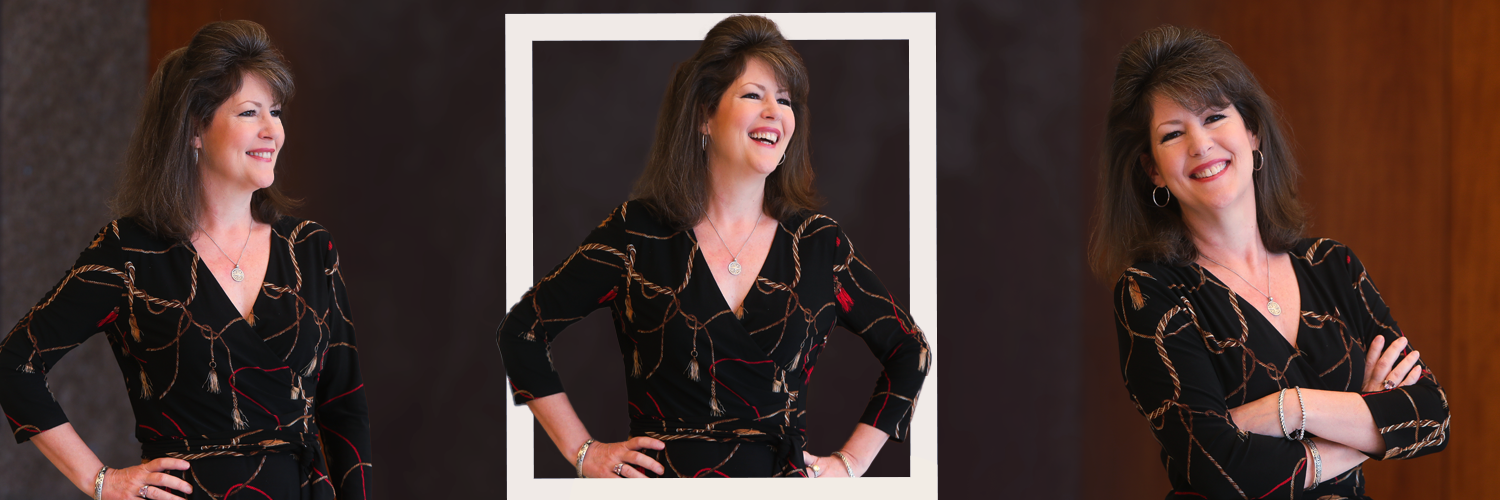
Founder and CEO of Productive Day®
Creator of Taskology® The Science of Getting Things Done
Author of “Taskology: How to Unleash the Power of Your Most Productive Workday”
Hello and welcome to Productive Day!
Many people ask me how I got into the consulting and training I do for clients of Productive Day and how Taskology® came to be.
Here’s where I share the whole story of how it all began, starting with the three foundational blocks upon which Productive Day® was built.
The first is made up of my character traits—my innate talents and tendencies, strengths and skills, and my personality.
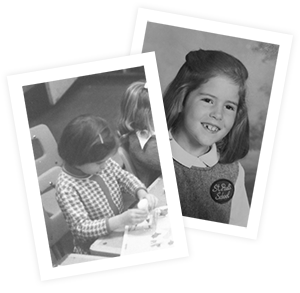 From a very early age, I had been described by others as efficient, prompt, and productive. Report cards from teachers continuously displayed words and phrases such as “good progress,” “excellent progress,” “prompt” and “efficient.”
From a very early age, I had been described by others as efficient, prompt, and productive. Report cards from teachers continuously displayed words and phrases such as “good progress,” “excellent progress,” “prompt” and “efficient.”
Here are some of the actual lines that showed up repeatedly on grade school report cards when I was 9 and 10 years old…
“Leslie uses her time wisely.”
“Leslie continues to work efficiently.”
“Excellent record of daily progress.”
“Leslie makes efficient use of her time in school.”
“Leslie is using her time wisely to complete her tasks.”
“Leslie is quite responsible in the performance of all tasks.”
Fast forward to high school and our senior yearbook had a special page for the graduating class called “That’ll be the day when…” Every graduate was listed with a special entry representing what they were best known for.
My classmates knew I wasn’t a procrastinator, often turning in assignments early. So, here’s what mine said about me…
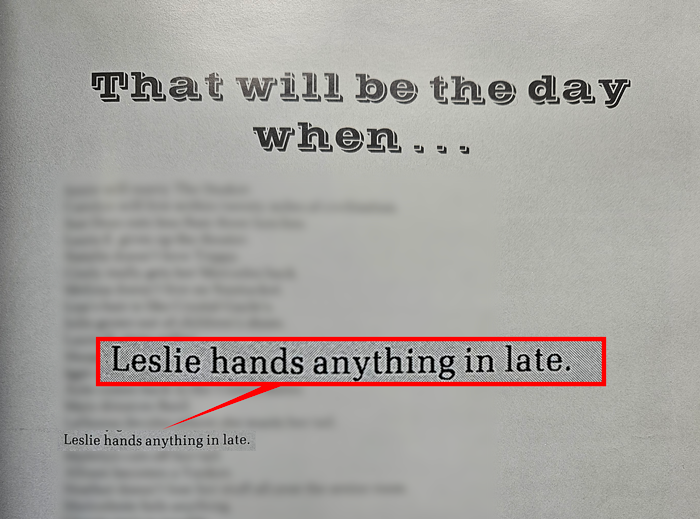
The second foundational block that built Productive Day was my childhood: where and how I grew up.
 I was raised on a sizable piece of property in Baltimore County until I was 17. I mention this not to impress you, but rather to impress UPON you that there was no shortage of things to do!
I was raised on a sizable piece of property in Baltimore County until I was 17. I mention this not to impress you, but rather to impress UPON you that there was no shortage of things to do!
I was raised by two EXTREMELY productive parents. They exemplified how to get things done and empowered me to do anything and everything I put my mind to. They taught me how to be capable, confident, industrious, purposeful, and productive.
What my parents modeled and taught made a huge impact on my life. I LOVED working alongside my parents, getting things done and learning everything they had to teach me. I really appreciated the skills and the work ethic they instilled, and I loved the feeling of empowerment to get things done.
There were moments, however, when I would have probably preferred to play instead of helping to cut grass, fix fences, tend the horses, shovel gravel, dig in the vegetable garden, or chop and stack wood. But don’t get me wrong. While my chores were part of my “room and board,” there were plenty of chances for me to play and have fun. 😉
Here’s what my parents modeled really well…
1. Planning and execution
My parents were masters at planning and execution. Whether it was planning a weekend project, our next vacation, home improvements, or their next party, they made a plan, planned their time carefully, and executed efficiently—realistically and on time.2. Finishing what you start
My parents always finished what they started. They regularly modeled what success looked like on the other side of effort, and the feeling of success I felt in finishing what I had started always encouraged me to keep finishing ANYTHING I started.
3. Celebrating a job well done
My parents always took the time to stand back and admire a job well done, whether I did it, they did it, or we did it together. They modeled how to appreciate the completed job and the efforts that went into it with enthusiasm. This continued to lead me to be inspired, motivated, and looking forward to the next project.
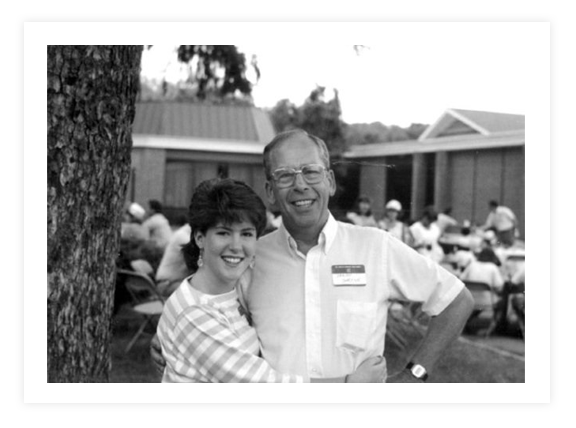
The third foundational block that built Productive Day was my love of corporate.
I knew from a very young age that I wanted to work in corporate office environments, just like my Dad. He worked at Black & Decker for more than 30 years and I wanted to be just like him and work in places just like he did.
My Dad also started his own business on the side called Shreve & Co. when I was a teenager and he let me help him in his office from time to time I entered receipts in the ledger and kept his business checkbook balanced.
These were perfect little tasks for me and I always enjoyed helping him make progress, no matter how much or how little.
After high school, I graduated from the University of Mary Washington in Fredericksburg, VA with a Bachelor’s Degree in Business. I returned home to Baltimore driven, excited, and motivated to start working, and I landed my first job two weeks after graduation.
My first job placed me into operations—specifically materiel management, purchasing and contracting—and in the 13 years that followed, I held various jobs in the same line of work and mostly in health systems, such as LifeBridge Health in Baltimore, MD and in the corporate offices of Bon Secours Health System in Marriottsville, MD. I LOVED my career. I was great at it. But one day, something changed.
Gradually, I became aware of not feeling like I was making a difference. I wasn’t as excited with my day-to-day job as I used to be. I was getting restless—maybe even bored. Being good at my job wasn’t enough anymore. I wasn’t feeling FULFILLED. And while I loved the people with whom I worked, the feeling of wanting to do something completely different took over. I wanted to stretch and reach for a way to make a difference in the professional lives of others.
So I quit my corporate job.
I left my job in 2003 and started a business, and I never looked back—not even ONCE—because I knew I had made the right decision. As I began working with clients, I quickly discovered that professionals weren’t operating as efficiently, effectively, or as productively as they could be. They were frustrated, stressed out, and often overwhelmed.
Their progress and results suffered because they were:
Because of this, professionals were feeling…
My clients—like most professionals—didn’t know whether to blame their circumstances on disorganization or poor time management skills—which are the two most popular suspects—or something else.
You can certainly “get organized” and be clutter-free or start time blocking, which is also great, but if you’re STILL not able to…
…then you STILL won’t be able to accomplish tasks efficiently or make progress in meaningful work.
In the first few years, I noticed that three things were absent in FAR too many professional workdays—and still are.
Understanding this early on helped me to solidify my PASSION and my PURPOSE.
My Passion: Ultimate Efficiency, Productivity, and Progress.
My Purpose: To create a simple, logical, and easy-to-use system for workload management
so professionals can make more progress at work and enjoy more stress-free time at home.
What’s interesting is that even after starting my business in 2003, I was still lugging around a Franklin Covey planner.
Then I bought my first “PDA” (Personal Digital Assistant) from Verizon in late 2004 and ditched the planner.
After that, I decided to maximize the use of my old familiar friend, Microsoft Outlook®, a system I’d been using since the early ’90s after I graduated from college.

As I worked with client after client, a repeatable process revealed itself.
Soon after, I created and trademarked Taskology® The Science of Getting Things Done and at that point, my Mission became clear.
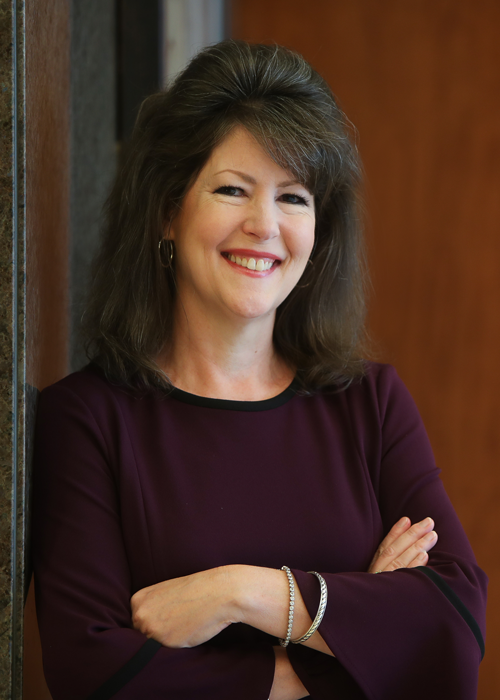 I certainly understand what my clients go through. I was just as over-stretched and stressed out back then as most professionals are today. I was sometimes frazzled trying to juggle it all, and from time to time I definitely felt overwhelmed. I even remember crying to a boss or two along the way. Embarrassing, but true. 🫣
I certainly understand what my clients go through. I was just as over-stretched and stressed out back then as most professionals are today. I was sometimes frazzled trying to juggle it all, and from time to time I definitely felt overwhelmed. I even remember crying to a boss or two along the way. Embarrassing, but true. 🫣
I did the best I could to try to stay on top of things, just like everyone, but unfortunately I did MANY of the things I advise my clients AGAINST today. All the while, my efficiency, productivity, and progress were suffering without my ever realizing it.
Here are a few examples…
Even though I was really efficient and pretty darn productive back in my corporate days…
…I wasn’t managing tasks and priorities as strategically as I could.
…I was losing time I didn’t know I was losing—and didn’t know how to save!
…I didn’t know I could manage my email more effectively.
Technology plays a part in all of this, too, of course, because certain technology wasn’t available back then, but still…
I just didn’t know that I didn’t know. 🤷🏻♀️
Many clients say this to me, too. After learning Taskology, many have said, “You don’t know until you know.”
And it’s true.
So, my message to you is this…
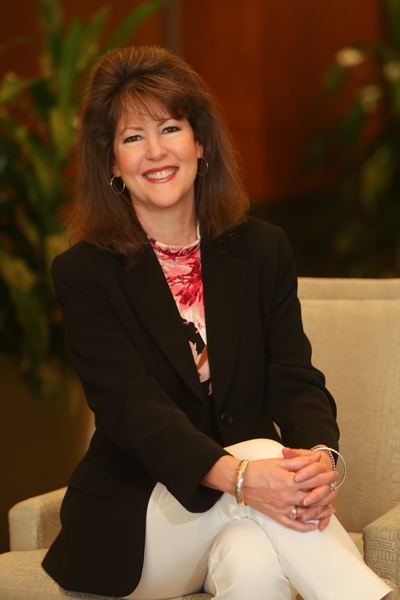 In summary, the unique combination of my character traits, childhood, and corporate experience allows me to identify with, support, coach, and advise self-motivated executives and professionals, no matter their industry or levels of expertise, experience, education, talent, background, work environment, or unique challenges.
In summary, the unique combination of my character traits, childhood, and corporate experience allows me to identify with, support, coach, and advise self-motivated executives and professionals, no matter their industry or levels of expertise, experience, education, talent, background, work environment, or unique challenges.
The system works for anyone with too much to do, too many emails, too much information, and too little time—AND for those who want greater efficiency, more time, more progress, and better results—WITHOUT complicated systems or apps—while enjoying more personal time at home.
The obstacles that prevent you from reaching your ideal levels of efficiency and productivity right now might be new for you or they may be life-long challenges. Either way, I congratulate you for seeking a solution.
I invite you to read a few of the client stories and testimonials on our Client Results page. There are more than 100. 💥
Plus, there are a few videos you can watch, too. 🎥
Discover the outcomes and benefits you can enjoy enjoy as a result of learning Taskology®.
Who knows… you may be our next success story.
To your productivity and success,
Leslie